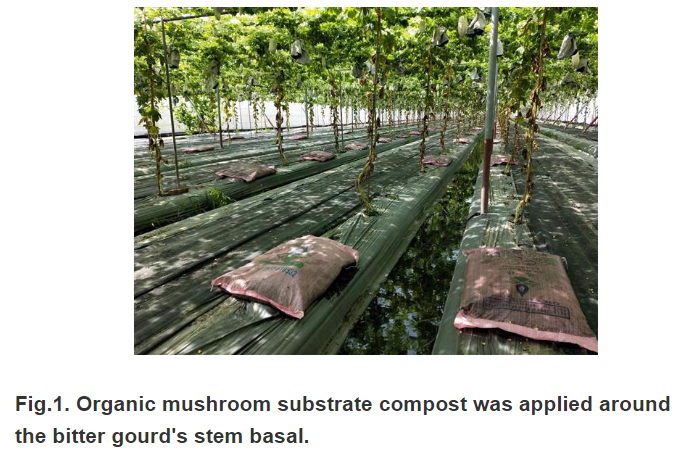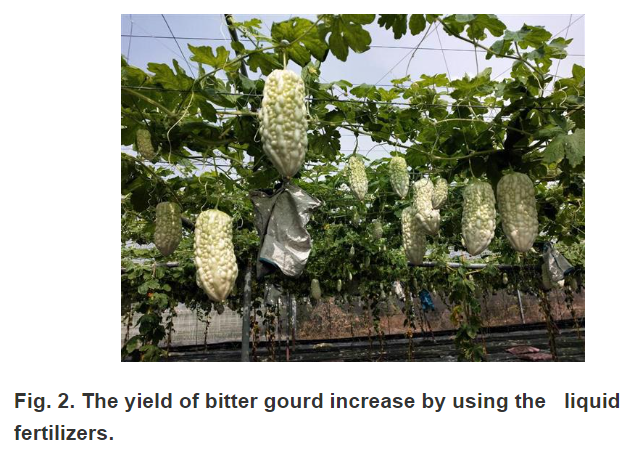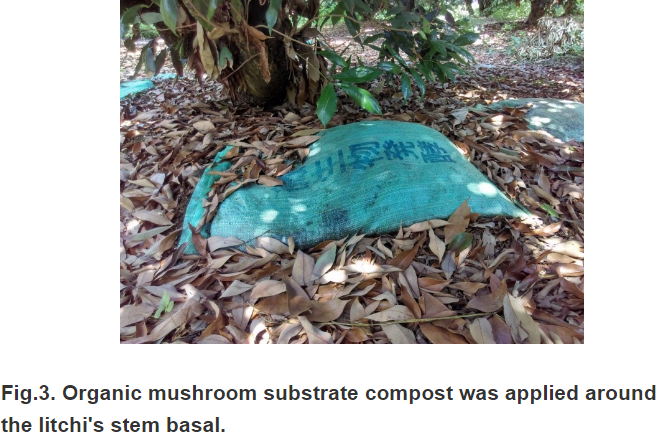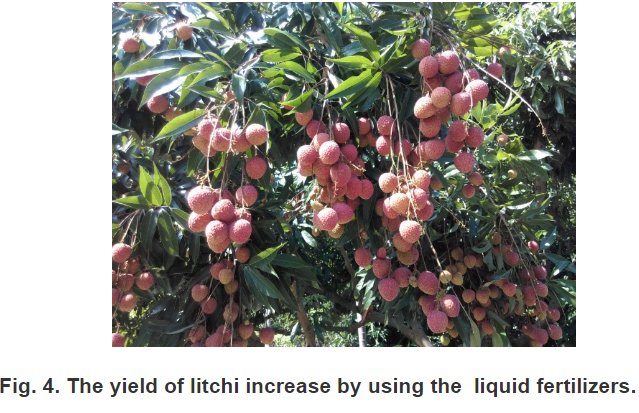In Taiwan, the climate is frequently affected by heavy rain or typhoons during summer, and crops were severely damaged during this season. Taichung District Agricultural Research and Extension Station (TDARES) has developed a field application technique of new cultivation media, a combination of organic mushroom substrate compost and liquid fertilizers. This technique can successfully increase the abilities of flood resistance, drought resistance and tolerance to temperature variation on litchi, guava, grapes, passion fruit, bitter gourd, loofah and kale. This technique can be used to increase the adaptation of crops to climate change and also reuse recyclable agricultural wastes.
A serial of abnormal weather conditions was observed in 2018-2019. After an abnormal warm winter in 2018, January and February 2019 have drought seasons and were followed by heavy rain full in March, April, July, and August 2019. The bitter gourd fields were flooded due to continuous heavy rain. In TDARES’s field experiment, the organic mushroom substrate compost was applied around the bitter gourd's stem basal and liquid fertilizers were also sprayed. None of the treated bitter gourds died after flooding. On the other hand, death rate of untreated bitter gourds after flooding reaches 40-80%. In addition, the treated bitter gourds could extend the harvest period by two months, and the yield of 0.1 hectare increased from 2,300 kg to 4,000 kg.


The extreme weather condition also affect the yield of litchi in July 2019. In TDARES’s litchi field experiment, the liquid fertilizer with diatomaceous earth was fermented by Trichoderma asperelloides and then sprayed on litchi’s crowns and leaves, which increases the new leaf growth rate of litchi trees up to 70%-80% comparing to the untreated ones. The tree vigor of old litchi tree can restore after treatment and the flowering rate has reached 50%-80%, in the meantime, the control group was only 0-5%.


Taiwan: New fields technologies for adaptation to extreme climate change
In Taiwan, the climate is frequently affected by heavy rain or typhoons during summer, and crops were severely damaged during this season. Taichung District Agricultural Research and Extension Station (TDARES) has developed a field application technique of new cultivation media, a combination of organic mushroom substrate compost and liquid fertilizers. This technique can successfully increase the abilities of flood resistance, drought resistance and tolerance to temperature variation on litchi, guava, grapes, passion fruit, bitter gourd, loofah and kale. This technique can be used to increase the adaptation of crops to climate change and also reuse recyclable agricultural wastes.
A serial of abnormal weather conditions was observed in 2018-2019. After an abnormal warm winter in 2018, January and February 2019 have drought seasons and were followed by heavy rain full in March, April, July, and August 2019. The bitter gourd fields were flooded due to continuous heavy rain. In TDARES’s field experiment, the organic mushroom substrate compost was applied around the bitter gourd's stem basal and liquid fertilizers were also sprayed. None of the treated bitter gourds died after flooding. On the other hand, death rate of untreated bitter gourds after flooding reaches 40-80%. In addition, the treated bitter gourds could extend the harvest period by two months, and the yield of 0.1 hectare increased from 2,300 kg to 4,000 kg.
The extreme weather condition also affect the yield of litchi in July 2019. In TDARES’s litchi field experiment, the liquid fertilizer with diatomaceous earth was fermented by Trichoderma asperelloides and then sprayed on litchi’s crowns and leaves, which increases the new leaf growth rate of litchi trees up to 70%-80% comparing to the untreated ones. The tree vigor of old litchi tree can restore after treatment and the flowering rate has reached 50%-80%, in the meantime, the control group was only 0-5%.